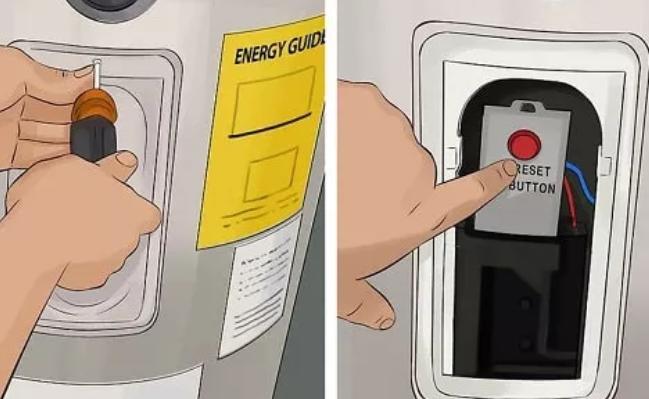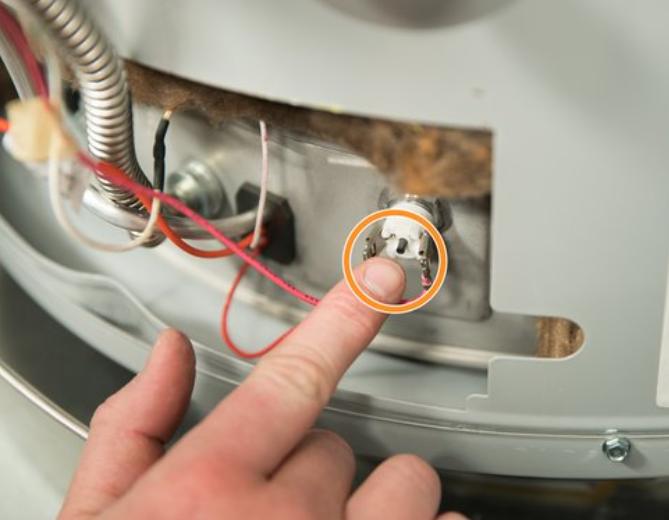Resetting your water heater can save you from cold showers and restore your hot water supply. Understanding when and how to reset your water heater can prevent bigger issues and save you money on repairs. This guide will provide you with step-by-step instructions on how to reset water heater safely, explore common reasons why a reset might be necessary, and offer troubleshooting tips if a reset doesn’t work. Whether you have an electric or gas water heater, knowing these expert tips will ensure you can handle the situation with confidence and keep your water heater running smoothly.

How to Safely Reset Your Water Heater
Step-by-Step Instructions
1. Turn off the power: For electric heaters, switch off the breaker. For gas heaters, turn off the gas valve to ensure safety.
2. Locate the reset button: Typically found near the thermostat. It’s often red and easily identifiable.
3. Press the reset button: Hold it down until you hear a click. This resets the internal circuit breaker.
4. Restore power: Turn the breaker back on or the gas valve to the on position. This will restart the heating process.
5. Check for hot water: Wait about 30 minutes and test the hot water. If hot water is restored, the reset was successful.
Following these steps ensures that you reset your water heater safely and effectively. It’s important to adhere to the specific instructions for your water heater model, as procedures can vary. If you’re unsure, consult your heater’s manual or a professional technician for guidance.
Safety Precautions to Take
Safety should always come first when working with your water heater. Ensure you turn off all power to the heater before beginning any work to avoid electric shock or gas leaks. Wear insulated gloves to prevent electric shock. Keep the area around the heater clear to avoid any hazards, such as flammable materials or obstructions. If you smell gas, leave the area immediately and call a professional, as this indicates a potentially dangerous leak. Never attempt to reset a water heater that shows signs of leaking or serious malfunction, such as severe corrosion or structural damage. These issues require professional assessment and repair. When in doubt, contact a licensed technician to ensure your safety and the proper operation of your heater. Regularly inspecting your water heater for signs of wear and tear can also help prevent the need for resets and maintain safe operation.
What to Do If Resetting Doesn’t Work?
Troubleshooting Tips
If resetting your water heater doesn’t work, there are several troubleshooting steps you can take. First, check for any blown fuses or tripped circuit breakers in your home’s electrical panel. These can interrupt power to the heater. Next, inspect the thermostat for any visible damage or faults. Sometimes, a faulty thermostat can prevent the heater from operating correctly. Look for sediment buildup in the tank, which might need flushing, as this can cause overheating and inefficiency. Ensure all electrical connections are secure and there are no loose wires. Additionally, check the heating elements, as they might be the issue and require replacement. Follow your user manual for specific troubleshooting steps related to your model. If these steps do not resolve the issue, it might indicate a more serious problem that requires professional intervention.
When to Call a Professional
If you’ve tried resetting your water heater and it still doesn’t work, it might be time to call a professional. Persistent issues such as repeated tripping of the reset button, unusual noises, or leaks should be handled by a licensed technician. They can diagnose and fix problems that might not be immediately obvious, such as internal wiring issues, faulty thermostats, or damaged heating elements. Don’t attempt repairs beyond basic troubleshooting, as it can lead to further damage or safety hazards. Professional help ensures the job is done right and safely. Additionally, if your water heater is under warranty, attempting extensive DIY repairs can void the warranty. Always prioritize safety and efficiency by seeking expert advice when necessary.

Preventative Maintenance to Avoid Frequent Resets
Regular Maintenance Tips
Regular maintenance can prevent the need for frequent resets and extend the life of your water heater. Flush the tank every six months to remove sediment buildup. Sediment can cause overheating and reduce efficiency, leading to frequent resets. Check the pressure relief valve annually to ensure it’s functioning correctly and not leaking. Inspect the anode rod and replace it if it’s heavily corroded, as it protects the tank from rust. Make sure to keep the area around the heater clean and free from dust and debris, which can interfere with its operation. Performing these routine tasks can extend the life of your water heater and keep it operating efficiently. Additionally, consider scheduling a professional inspection every few years to catch potential issues early and ensure your water heater remains in good working condition.
How to Extend Your Water Heater’s Lifespan
To extend your water heater’s lifespan, follow several key practices. Set the thermostat to 120 degrees Fahrenheit to avoid overheating and excessive energy use. Insulate the tank and pipes to maintain temperature and reduce the workload on the heater, which can prevent wear and tear. Install a water softener if you have hard water, as this can reduce sediment buildup that causes inefficiency and damage. Regularly inspect the heater for signs of wear, such as rust or corrosion, and address issues promptly to prevent more serious damage. Schedule professional inspections every couple of years to catch potential issues early and ensure optimal performance. Following these tips can help your water heater last longer and perform better, providing reliable hot water for years to come.
Conclusion
Knowing how to reset water heater and perform basic troubleshooting can save you from unnecessary discomfort and expenses. Regular maintenance and understanding the signs that your water heater needs attention are crucial. If resetting doesn’t solve the problem, don’t hesitate to call a professional. With these expert tips, you can ensure your water heater operates efficiently and lasts longer, providing you with reliable hot water when you need it. Proper care and timely intervention can prevent small issues from becoming major problems, keeping your home’s hot water supply consistent and dependable.
FAQs
1: How often should I reset my water heater?
You should reset your water heater only when necessary, such as after power surges or if the reset button is tripped. Frequent resets may indicate underlying issues that need professional attention. If you find yourself resetting the heater more than a few times a year, it’s a sign that something may be wrong, and you should consider a thorough inspection or contacting a professional.
2: Can I reset my water heater myself, or should I call a professional?
You can reset your water heater yourself by following the steps outlined above. However, if you’re uncomfortable or the problem persists, it’s best to call a professional to avoid any potential hazards. DIY resets are generally safe and straightforward, but persistent issues or unusual symptoms warrant professional evaluation to ensure there are no serious underlying problems.
3: What should I do if my water heater keeps needing resets?
If your water heater frequently needs resets, it could be a sign of a larger issue such as a faulty thermostat, heating element, or sediment buildup. In such cases, it’s advisable to have a professional inspect and repair your heater. Continuous resetting is not normal and points to an underlying problem that could worsen over time if not addressed properly.
